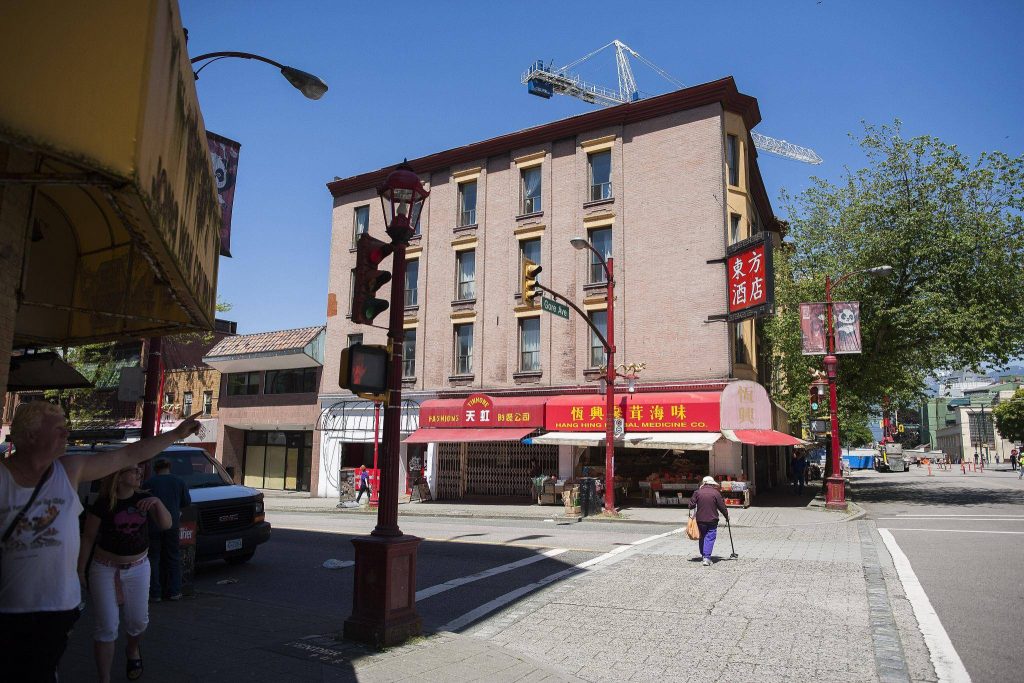By Frances Bula, on December 13, 2017
One of the most controversial building proposals in Vancouver’s recent history – a condo project in historic Chinatown – is headed for another attempt at approval.
The development company Beedie Living is appealing a decision to reject the project at 105 Keefer, claiming Vancouver’s development-permit board had no authority to refuse the proposal and that the decision has caused “significant hardship” to the company.
The Beedie project was rejected last month – the first outright rejection in the permit board’s 43-year history – after vocal protests by housing advocates and Chinatown residents. The nine-storey development, which had already been cleared by other city agencies and committees, has become a symbol of gentrification and change in Chinatown, a neighbourhood that has seen a decline since its heyday in the 1970s.
The city suggested the company could come back with revisions to its proposal, which had already been changed at least four times to respond to concerns. Instead, the company has asked the city’s board of variance, which hears appeals on issues such as zoning and development permits, to review the decision.
Specialist real-estate lawyer Neil Kornfeld, who submitted the application to the board of variance Dec. 6 on behalf of the company, emphasized in the filing how much the years-long effort to get city approval has cost Beedie Living and the harm it has done on several fronts.
He also points out that city staff had recommended the nine-storey, 111-unit project go ahead, with a list of conditions that Beedie was prepared to comply with.
Mr. Kornfeld noted that Beedie has lost money on consulting and professional fees and had to pay extra for carrying costs over the years.
“The applicant has suffered and continues to suffer damage to its reputation in that the development permit board’s refusal of the application on the ostensible basis of lack of compliance with design guidelines, when such was not the case … has lessened the applicant’s standing in the community,” says the application, obtained through a freedom-of-information request.







